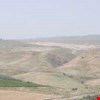
In order to meet new demands, the Jordan Valley Authority was in need for reform. Action was taken to initiate a public strategic planning process led by a steering committee composed of all relevant stakeholders and various working groups. The case consequently illustrates how an integrated strategic planning process can create conditions under which all stakeholders can be involved in the proposed institutional reform.

The Maltese islands experience acute water shortage as an area. To address this, leakage control has been developed to become a strategically important component for water resource management, and has been used to reach an optimum economic balance between water supply and water demand. The key lesson is that leakage management is an effective supply side action to increase efficiency in water use leading, and can be used as a strategic tool.
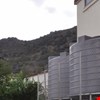
The majority of the Mediterranean islands encounter water scarcity challenges due to their small catchment areas and the impacts of emerging climate vulnerability and change. To tackle the problem of water scarcity, the Global Water Partnership Mediterranean (GWP-Med) has developed the concept and content of the Non-Conventional Water Resources (NCWR) programme implemented in Greece since 2008, in Malta since 2011, and in Cyprus since 2013.
In the Maghreb region food security relies mainly on irrigated agriculture. Centralized water management which lack water users’ involvement causes problems in the quality and quantity of the resource. Alternative models, which include the management of water by users, have strengthened the innovation of small scale irrigation systems and supported the initiation of cooperatives and networks. This case illustrates the value of small scale solutions, cooperation and training.
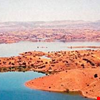
Drinking water supply of the Rabat-Casablanca coastal area has depended on water transfers from groundwater. Estimates showed that transfers would have to be extended to include surface water, if water requirements were to be met, requiring water transfer together with investments in production, distribution and sanitation. A policy initiative was undertaken to address the issue. The key lesson is that integration of water demand management in water policies is effective for strengthening water security.

In Marocco, rapid urbanisation has led to increased demands for quality and quantity of water resources. To meet the challenges posed by the growing water scarcity, Morocco has adopted an integrated approach to water resources management through mutually reinforcing policy and institutional reforms, including the adoption of a long term IWRM strategy. The key lesson is the importance of introducing economic incentives to water management.
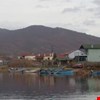
The Prespa basin was affected by over-abstraction and diversion of water, wetland drainage, deforestation and overgrazing, leading to danger for human livelihoods and ecosystems. Action was taken by WWF through the creation of the Society for the Protection of Prespa, eventually culminating in the creation of Prespa National Park. The lesson drawn is that to change the perspective of local stakeholders to ensure that they share a common vision is vital for success.
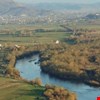
The Drin River is a complex transboundary water system and a strategic developmental resource for its riparian states in South Eastern Europe.
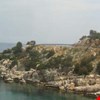
In Turkey, operations and maintenance for irrigation systems was highly centralised, but this imposed an increasing institutional and financial burden on the government. Action has consequently been taken to transfer irrigation management to Water User Associations. The key insight from this case is that legal reforms should accompany institutional changes to enable full benefits to be gained.